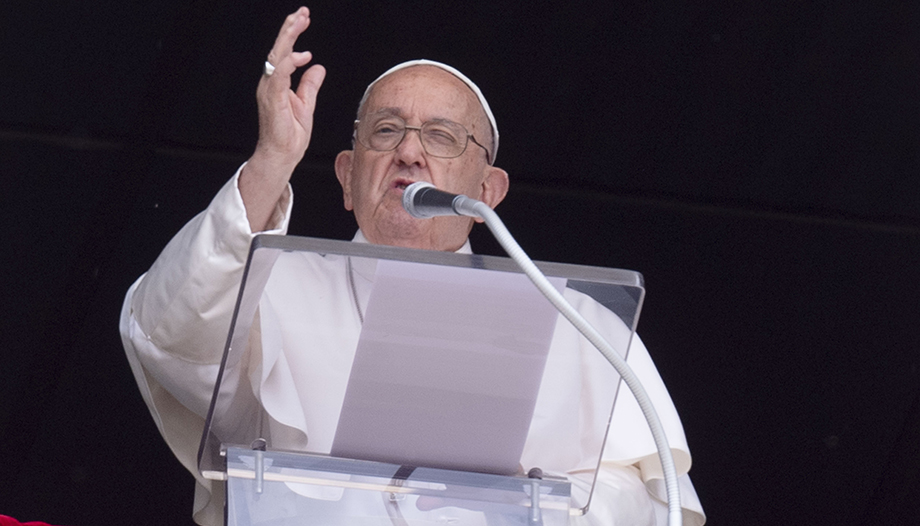The written output of Pope Francis' magisterium during his twelve years at the head of the Catholic Church is vast and diverse.
Encyclicals
Pope Francis inaugurated his pontificate with the publication of Lumen Fidei on June 29, 2013, an encyclical in which many guessed the pen of his predecessor, Benedict XVI who completed the trilogy dedicated to the theological virtues: Hope (Spe salvi), charity (Caritas in veritate) and faith, with this last encyclical that Francis found himself practically done.
The Argentine Pope published Laudato Si'the first major document of the Pope dedicated to the ecology on May 24, 2015. In that encyclical, the Pope collected and developed part of the magisterium of his predecessors, emphasizing that Christians recognize that their responsibility within creation and their duty towards nature and the Creator are an essential part of their faith. The Pope encouraged the search for other ways of understanding the economy and progress, stressing that authentic human development has a moral character and must be concerned with the world around us (something he would also take up in Fratelli tutti), and called for an ecological conversion, recognizing that every creature reflects something of God. In that encyclical he spoke of the "throwaway culture," one of his pontificate's lines, promoting social change that would give value to the poorest and most vulnerable: the elderly, abandoned children, the poor, migrants....
In 2020, Francis signed in Assisi the encyclical Fratelli Tutti. The place chosen for the rubric of this encyclical was not accidental: the saint of Assisi is the inspiration for an encyclical in which the Pope advocated a new vision of fraternity and social friendship that does not remain at the level of words. In this sense, Fratelli Tutti was meant to be a contribution to the development of a global community of fraternity based on the practice of social friendship by peoples and nations demands a better politics, one that is truly at the service of the common good. There were those who called this encyclical Pope Francis' most "political" encyclical, since the pontiff expressly addressed the rulers of peoples urging them to a "political charity," focused on working for a social and political order whose soul is social charity.
Laudato si' and Fratelli Tutti have been, perhaps, Pope Francis' two most well-known and influential encyclicals of his pontificate. Less than a year ago, on October 24, 2024, the Pope published his last encyclical, Dilexit us, in which the Pope explores the meaning of the Sacred Heart of Jesus as a source of love and a center for the life of every person. The encyclical invites the faithful to a deeper encounter with Christ, trusting fully in his love to attain definitive union with him, and addresses the importance of the Eucharist and the veneration of sacred images as a means of drawing closer to Christ and nourishing our lives. In this encyclical, he also took up the call to love everyone that he had initiated in Fratelli tutti, pointing out that love of neighbor, nourished by the love of Christ, enables us to love as he loved, showing humility and closeness to all.
Apostolic exhortations, the lines of his pontificate
Among the most important texts that Pope Francis published during his pontificate are the Apostolic Exhortations written by him. In total there were seven such documents of which three: Evangelii Gaudium, Amoris Laetitia and Gaudete et Exsultate can be considered examples of the "master lines" of Francis' pontificate.
Evangelii Gaudium, written in the same year of his election, is the "program of government" of a Pope who called the faithful to embark on a new stage of evangelization, characterized by enthusiasm and the revitalization of structures. In this exhortation, the Pope addressed the need to reform the Church in her evangelizing mission, pointing out some temptations into which we can all fall and emphasizing the importance of including the poor in society, promoting peace and dialogue.
Three years later, Amoris Laetitia (2016) was published, in which the pontiff addresses the beauty and challenges of marriage and the family in today's world. In this exhortation, which was not free from certain misinterpretations, Pope Francis wanted to reflect on the importance of conjugal and family love, as well as on the need to accompany, discern and integrate all families, especially those in difficult situations. In Amoris Laetitia, the Pope also denounced the cultural, social, political and economic factors that impede authentic family life.
Finally, Gaudete et Exsultate (2018) is an invitation to holiness in everyday life. Pope Francis explained in this apostolic exhortation that all are called to be saints by living with love and offering one's witness in one's daily occupations, wherever one finds oneself and encouraged to show Christian commitment in such a way that everything one does has an evangelical meaning and identifies us with Jesus Christ.









